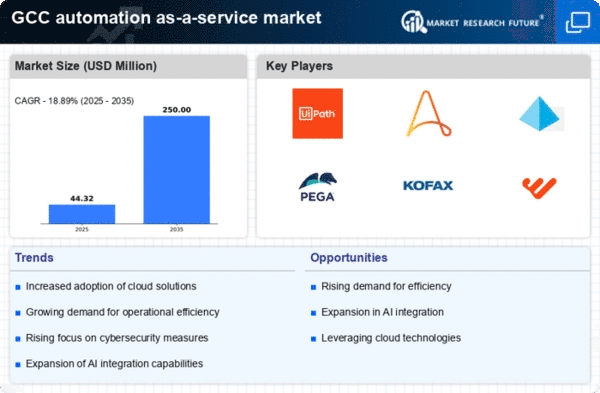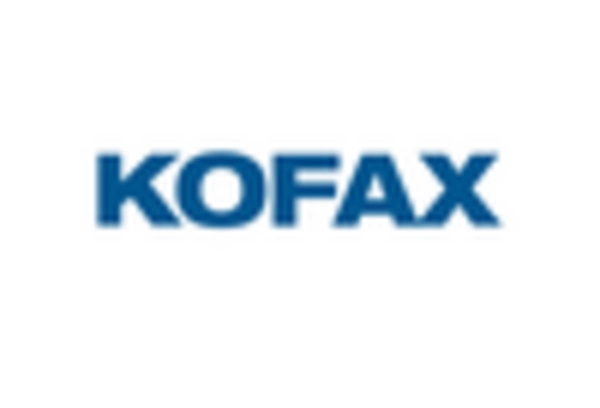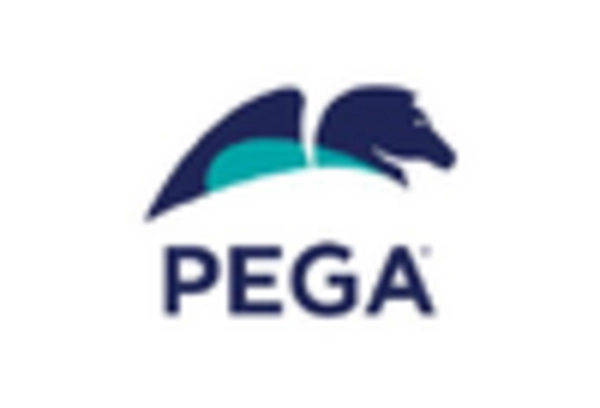Shift Towards Digital Transformation
In the GCC, the ongoing shift towards digital transformation is a key driver of the automation as-a-service market. Governments and enterprises are investing heavily in technology to modernize their operations and improve service delivery. For instance, the UAE's Vision 2021 aims to position the country as a leader in innovation and technology. This strategic focus is expected to propel the automation as-a-service market, as organizations seek to leverage automated solutions to enhance customer experiences and operational capabilities. The market is projected to grow at a CAGR of 25% over the next five years, reflecting the urgency of digital initiatives.
Growing Investment in Smart Technologies
Investment in smart technologies is a prominent driver of the automation as-a-service market in the GCC. As organizations seek to enhance their technological capabilities, there is a growing interest in integrating smart solutions such as IoT and AI into their operations. These technologies can facilitate automation by enabling real-time data collection and analysis, leading to more informed decision-making. The GCC region is witnessing substantial investments in smart infrastructure, particularly in sectors like energy and transportation. This trend is likely to propel the automation as-a-service market, as businesses look to harness the benefits of smart technologies to improve efficiency and competitiveness.
Rising Demand for Operational Efficiency
The The market is experiencing a notable surge in demand for operational efficiency across various sectors in the GCC.. Organizations are increasingly recognizing the potential of automation to streamline processes, reduce manual errors, and enhance productivity. According to recent data, businesses that implement automation solutions can achieve efficiency gains of up to 30%. This trend is particularly pronounced in industries such as manufacturing and logistics, where operational costs can be significantly reduced. As companies strive to remain competitive, the The market is likely to see continued growth, driven by the need for faster and more efficient operations..
Emergence of Advanced Analytics Capabilities
The emergence of advanced analytics capabilities is significantly influencing the automation as-a-service market in the GCC. Organizations are increasingly utilizing data analytics to drive decision-making and optimize processes. Automation solutions that incorporate analytics can provide valuable insights, enabling businesses to identify inefficiencies and areas for improvement. This trend is particularly relevant in sectors such as retail and telecommunications, where data-driven strategies can enhance customer engagement and operational performance. As the demand for data analytics continues to rise, the automation as-a-service market is expected to expand, offering innovative solutions that integrate analytics with automation.
Increased Focus on Compliance and Risk Management
The automation as-a-service market is also being driven by an increased focus on compliance and risk management within the GCC. As regulatory frameworks become more stringent, organizations are compelled to adopt automated solutions to ensure adherence to legal and industry standards. Automation can facilitate real-time monitoring and reporting, thereby reducing the risk of non-compliance. This is particularly relevant in sectors such as finance and healthcare, where the cost of non-compliance can be substantial. The growing emphasis on risk mitigation is likely to bolster the demand for automation services, as companies seek to safeguard their operations.
















